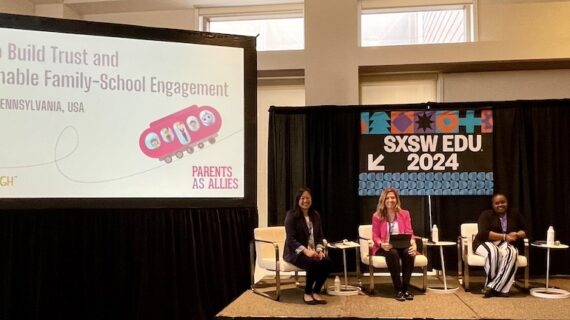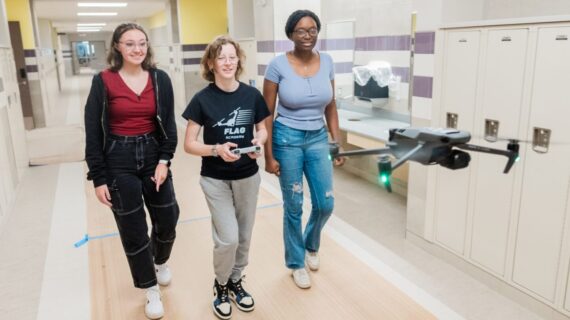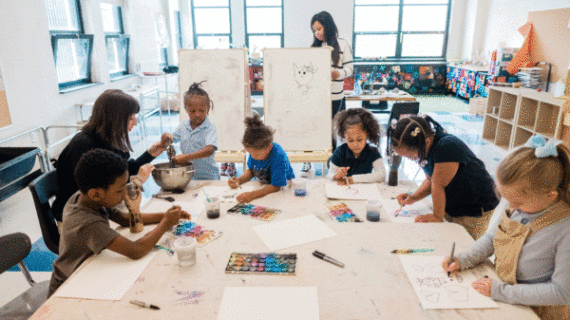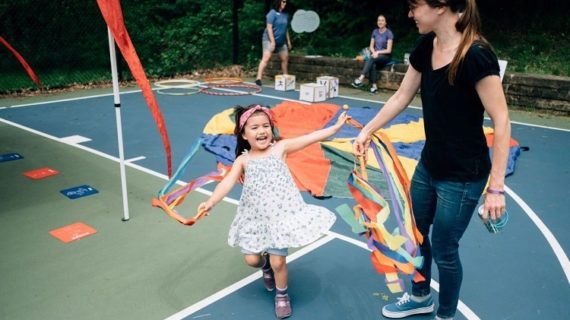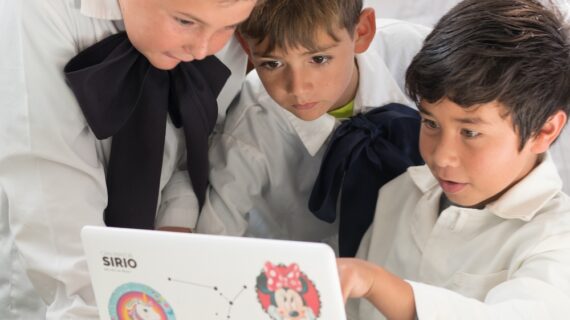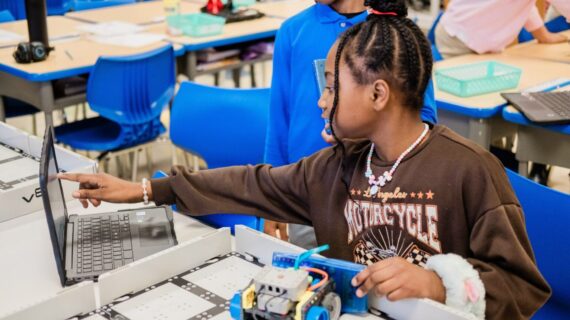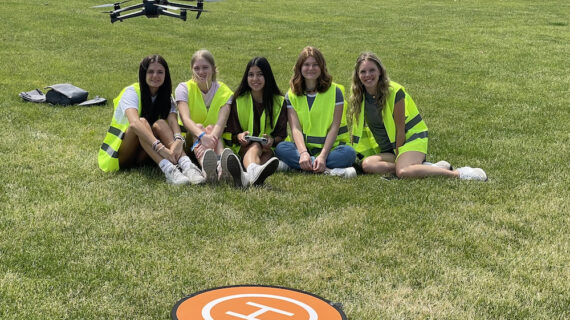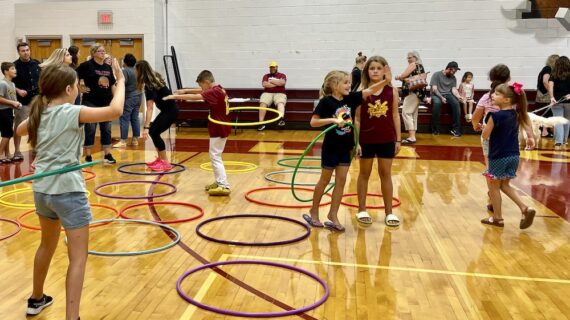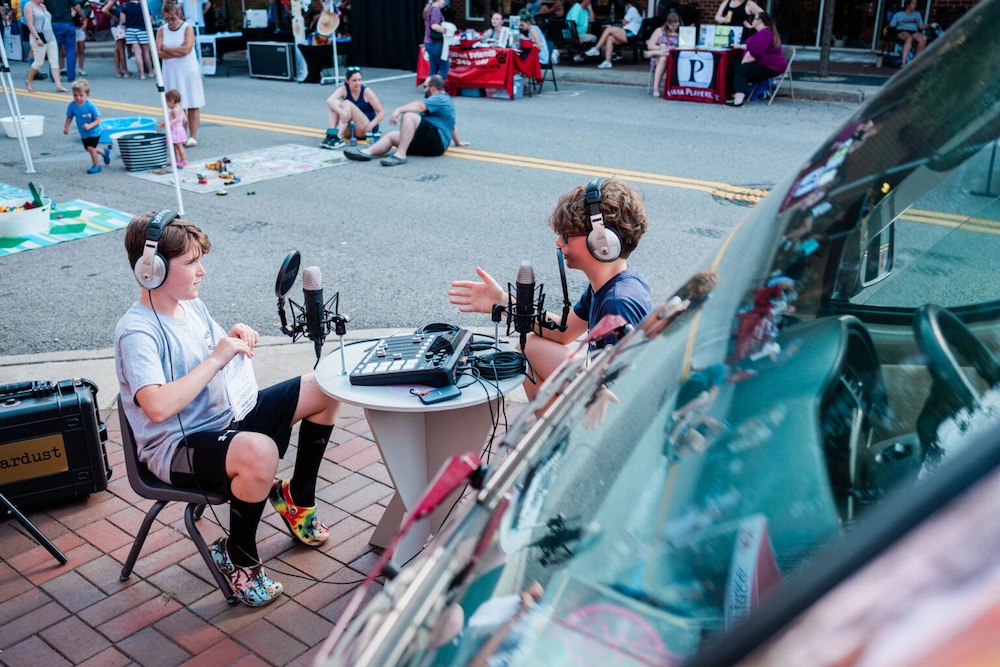
Soldering On: Local X Change helps local kids amplify their voices — and get hands-on experience
Photos by Ben Filio for Remake Learning.
Two 10-year-old girls sit down at a small table beside Local X Change’s shiny pink Japanese mini-truck. As summer campers at Bottle Works Ethnic Arts Center in Johnstown, Pa., they are accustomed to doing creative projects.
But today’s experience – recording their own voices and soldering wires to build Bluetooth speakers as part of Local X Change’s Studio Stream project – will be like nothing they have tried before.
Local X Change’s co-founders, artists Sharon Massey and Sean Derry, dreamed up the Studio Stream project to help students in the Pittsburgh region communities of Brownsville, Johnstown and Indiana express their voices.
But rather than simply capture young voices and share them publicly through Studio Stream’s web-based radio station, Derry and Massey are also teaching teens to build the technology that can actually amplify their messages.
“We want teens to gain some confidence – realizing that what they have to say is important, and that other people would want to hear that,” Massey says.
At the same time, she says, students are also “realizing skills that they didn’t know they had, whether that’s writing skills or creative skills or realizing that they like soldering and that they like learning about electronics and circuits.”
Massey and Derry were awarded a Moonshot Grant from Remake Learning last year to make this project happen.
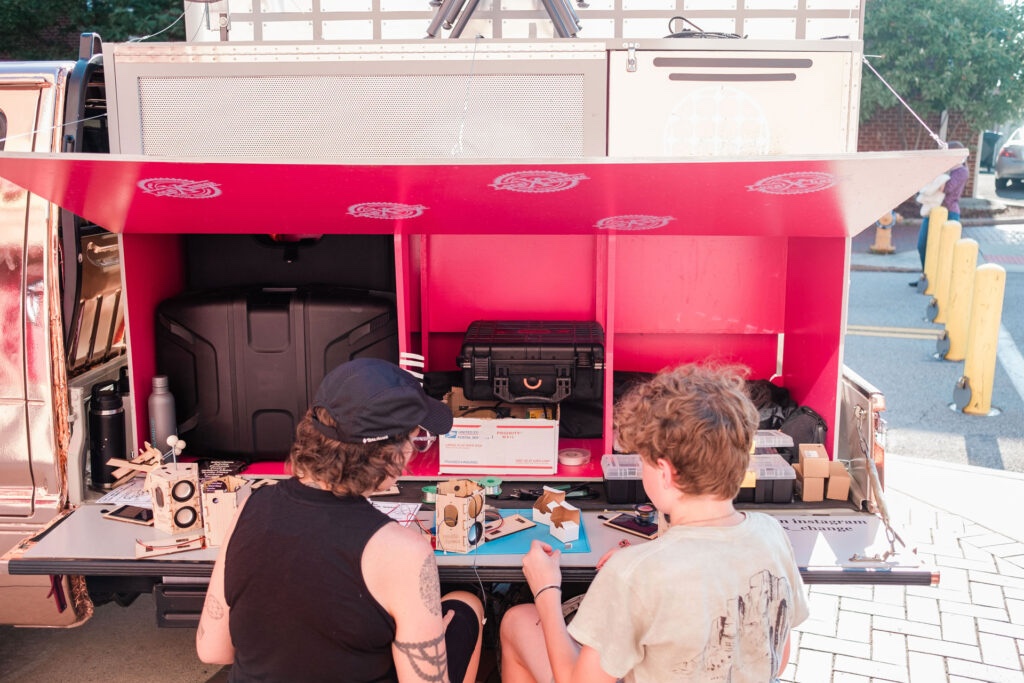
It’s a fresh idea, one partly inspired by the process of applying for the Moonshot Grant, Massey says: “We took the application pretty seriously, when they asked us to really go through all of the prompts about how we would reimagine the future of learning and come up with an entirely new project.”
Nelle Kearney, the youth art education coordinator at Bottle Works, found the Studio Stream project to be a great fit for her summer campers because it includes not just science and technology but also a real arts experience.
If we focus only on teaching math, science and engineering, Kearney says, where will tomorrow’s engineers get the creativity and inspiration to design the next wave of technology or dream up innovative uses for the technology we already have?
“Creative problem-solving is taught within the arts,” she says. So when we speak about STEAM learning, we need the “A” just as much as we need the S, T, E and M.
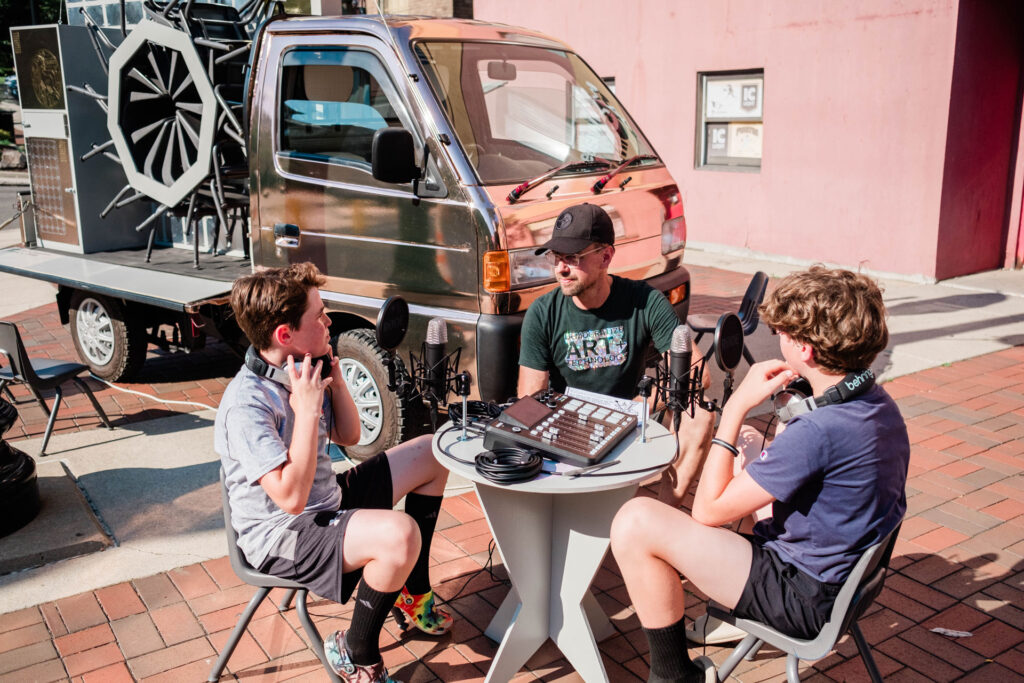
STUDIO STREAM IN ACTION
For Brooklyn McGowan and Carolyn Drohas, the 10-year-olds who are spending a summer morning with the Studio Stream team at Bottle Works, the experience is inspiring, if a little bit intimidating.
As four other girls sit nearby soldering wires and attaching circuits to construct small bluetooth speakers they will take home, McGowan and Drohas don pairs of headphones and lean in toward a set of microphones.
They don’t have an exact script planned, but they’d been given guidance about organizing their ideas and best practices when you’re recording a podcast or radio show. Step one: Start by introducing yourselves, then begin a conversation.
The faint fragrance of melting solder rises up from the other group of students as Drohas and McGowan begin to speak, first cautiously and then with a bit more confidence.
“It was a little nerve-wracking at first,” Drahos says, “because it was going to go on the radio. But after doing it, I thought it was really exciting.”
She and McGowan had discovered that even without a rehearsed script, they could experiment and trust themselves to share something interesting. It doesn’t have to be polished and preplanned.
After just a few minutes, both girls seem delighted at having learned something new.
“We messed up a couple of times, but it didn’t do anything,” McGowan says. “It wasn’t bad, messing up.”
Soon, they sit down to learn how to build the bluetooth speakers that will allow them to play the Studio Stream radio station – including their contribution – for their families and friends once the station premieres in late summer or early fall.
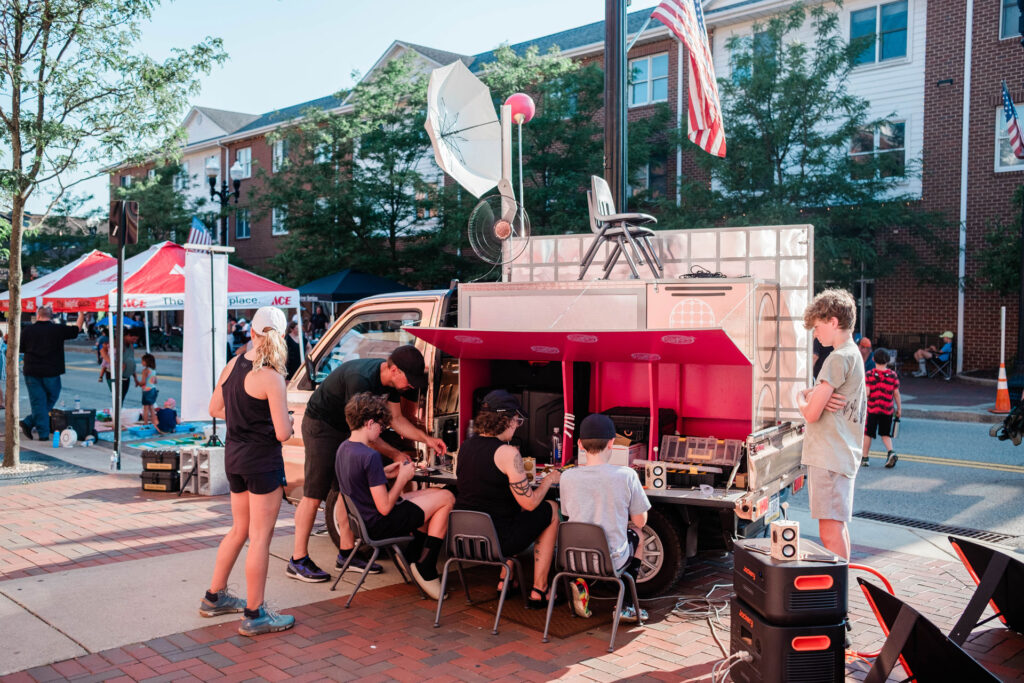
THE WORLD’S CUTEST MOBILE SATELLITE
Tiny as it may be, you can’t really miss the Local X Change mini-truck when it rumbles down the road. Wrapped in a layer of gleaming rose gold paint and tricked out with communications equipment, it catches people’s eyes when Derry and Massey set up shop in a mall parking lot, as they’ve done in Indiana, about 50 miles east of Pittsburgh.
As visual artists, Massey and Derry knew that they could leverage the power of good design. So the truck serves as a mobile workspace, and also a mobile advertisement for this innovative project.
“We thought, what kind of an unassuming vehicle that might attract attention and not be intimidating, but would kind of be something that people would respond to and want to participate in,” Massey says.
“Lots of women come and ask ‘What’s this cool, little, cute truck?’ and then their husbands are like, ‘Is it four-wheel drive?’ And they get really excited about it, too. … We wanted the project to be mobile, so we can go into communities, and people don’t have to come to us. It just felt like kind of a perfect fit.”
Many participants, though, have gotten connected with Studio Stream through Local X Change’s partnership with the nonprofit Rivers of Steel, which has longstanding relationships in the Mon Valley region.
Rivers of Steel founder and director Chris McGinnis says he was glad to sign on as a partner in the Studio Stream project to connect Derry and Massey with schools and other organizations he works with in Brownsville and beyond.
Just like Rivers of Steel, the Studio Stream project looks to use the arts to help communities and their residents thrive.
“We’ve been using the word ‘agency,’” Derry says. “We hope to kind of build agency among teens, and provide them with a unique experience that hopefully has a ripple effect into their learning, as well as into their relationships with their peers.”


